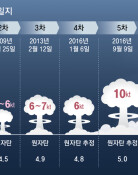New Keywords for Japanese Market
Mens corsets that help look their tummies slim, toilet stools that dont need cleaning for three months and game sets for the elderly are enjoying great popularity in Japan.
They give a glimpse into how the Japanese consumer market has changed.
The Korea Trade Investment Promotion Agency (KOTRA) released Thursday a report analyzing changes in the Japanese market. The report titled The trend in the Japanese consumer market and its implications said, While going through a cycle of protracted economic recession, recovery, and widening income gap for 10 years, Japan has seen its consumer market also significantly change, and presented hit items that illustrate the change.
According to the report, the notable change in the consumer market is the emergence of new consumer groups: men and senior citizens. They had been passive in spending in the past but now they are actively participating in consumption. An increase in the number of people living alone, shunning of household chores by the aging population and growing concern about the environment are also major factors in changing spending patterns.
With men emerging as a new consumer group, products targeting them are also being put out in the market. Special-purpose underwear and mens perfume are among them. Underwear that promises tight abdomen and hips are all in vogue.
Also hitting the stores are goods aiming at the aged who are eligible for pension funds. Casing in on their considerable purchasing power, companies are launching easy-to-use game sets like Nintendo Wii and mobile phones dedicated to the elderly and health-promoting products like incontinence-preventing underwear.
Three-month cleaning-free toilet stools and super-light cordless vacuum cleaners are also catching on. They are designed to relieve housekeeping burdens of those who live alone.
Japanese people also favor eco-friendly and design-oriented goods. Alauno from Matsushita that significantly reduces the water usage and Prius, Toyotas hybrid car, are leading examples in this regard.
Domestic companies considering exporting their goods to Japan should properly assess tastes of Japanese consumers and trends in the market, said an official of KOTRA.
cha@donga.com
Headline News
- S. Korea, US agree on defense const sharing-plan US presidential election
- Medical school quota discussions spark confusion 40 days before exam
- Zuckerberg surpasses Bezos to become world’s second richest person
- Son excluded from October national team due to thigh injury
- Ruing and opposition leaders launch campaigns ahead of by-election







